Originally published on the Extra Life Community website
Edited by Jack Gardner
Kingsglaive: Final Fantasy XV, a movie that parallels the Final Fantasy XV game, promised to bring photorealistic visuals and an understandable Final Fantasy story to fans of the games and newcomers alike. In the film, the kingdom of Lucis has waged war with the enemy empire Niflheim for many years. Regis, King of Lucis, possesses the Divine Crystal and the Ring of the Lucii, powerful magical objects that Niflheim wants. To protect them, Lucis raised an impenetrable wall around the crown city of Insomnia, using the power of the Crystal. Despite Lucis’ great magic and the king’s mighty warriors known as the Kingsglaive, Niflheim seems poised to win the war with its unsurpassed military force. Unexpectedly, Niflheim proposes a peace treaty that specifies Regis relinquish all territories outside Insomnia and marry his son Prince Noctis to Princess Lunafreya of Tenebrae. Twelve years previously, Tenebrae, a former ally of Lucis, fell under Niflheim rule when Regis abandoned it to save himself and Noctis. Regis decides to accept Niflheim’s treaty, but sends his son away to a safe location outside Insomnia, creating enemies among his own people and the Kingsglaive.
Despite its superficially sufficient story, beautiful visuals, and action-packed fight scenes, many critics describe Kingsglaive as a gorgeous mess. Many complain about the difficulty of following its convoluted and political plot. Others point out its weak characters: helpless and useless females, a throwaway protagonist, and stereotypical kings attempting to outmaneuver one another. Still others equate it to a long video game cut scene or trailer. Criticisms about its weird lip-syncing, mixed voice acting, and poorly written dialog abound.
As for me, I feel a sense of déjà vu. The description sounds awfully familiar: a Final Fantasy movie promising to bring photorealistic graphics and an accessible story to a new audience only to produce a lukewarm story disguised with impressive visuals. It bears a striking resemblance to Final Fantasy: The Spirits Within. I even recognize the complaints critics have in that I don’t think they reveal the source of Kingsglaive’s problems. I’ve argued before that Spirits Within contains a fatal flaw in the obstacles the protagonist faces in the pursuit of her goal to save her life and the world. Kingsglaive similarly has a flaw with its conflicts. This time, however, the problem is that conflicts are almost non-existent.
In most stories, characters have problems to solve. Simple stories often have one major, overarching conflict that the characters must resolve and many smaller obstacles that hinder them along the way. Conflicts not only add excitement and purpose, but also help define the world and its characters. Of course, obstacles work best when the characters have a good reason to overcome them no matter what. For example, a major conflict could be that a hero must free her village from a king’s tyrannical rule. In order to do this, she decides to kill the king and take his throne. The obstacles in her way include traveling to the king’s crown city, sneaking in through his walls, breaking into his castle, and fighting through his guards. She also has a clumsy, obnoxious wizard for a sidekick, who she tolerates because of his useful magical powers. Failure means her death and the destruction of her village. High stakes, big obstacles, and a variety of conflicts usually make stories exciting and engaging.
The heroes of Kingsglaive seem to fight for “the future” against characters who fight for “their homes.” These vague ideals rarely conflict with one another though nor do significant obstacles arise from other sources. Most of the main characters can’t fail to achieve their goals, and the consequences for failure are never defined and logically don’t seem that bad. Consequently, pointless violence, duty, and death fill the film, but one person could have given meaning to everything. Prince Noctis produces everyone’s problems and gives everyone purpose, but alas, he doesn’t appear in the film to bring this to light. No amount of action-packed fight scenes fill the void of meaninglessness Noctis’ absence creates.
As is, Kingsglaive suggests that the conflict between King Regis and his people comes from differences in beliefs as to what the kingdom should protect: the people’s “homelands” or the “future.” The film doesn’t define what these terms mean, but in general, “fighting for home” seems to refer to a desire for a just king who keeps his people safe. “Fighting for the future” seems equivalent to protecting Noctis so he can fulfill his destiny as the future king and world’s savior. While many of the characters fall into one camp or the other, each character seems to define what they fight for and how they will fight for it in a different way. King Regis fights for the future, which involves protecting both Lunafreya and Noctis. To make up for the fall of Tenebrae, he wants to free Luna from Niflheim’s grasp and reunite her with her beloved Noctis. Luna also protects the future, but she believes she must stay away from Noctis to keep him safe and that her survival doesn’t matter. The protagonist, a member of the Kingsglaive named Nyx, fights for the future by serving King Regis. After Regis gives away his hometown Galahd to Niflheim, Nyx’s friend and former Kingsglaive Libertus fights to overthrow Regis. The antagonist General Glauca appears to fight for both empires to keep his hometown safe. Ultimately, he sides with Niflheim to overthrow Regis in exchange for his home’s freedom.
On closer inspection, however, little stands in the way of the characters and their goals. Sometimes comically weak obstacles stumble them, sometimes the consequences of catastrophic events go unnoticed, and sometimes nothing can stop the characters from succeeding. Luna and Regis’ goals appear to be in conflict with one another, but really, nothing can stop Luna from keeping Noctis safe by staying away from him. In the beginning of the movie, she briefly goes along with Regis’ plan to escort her to a safe location to rendezvous with Noctis, but when his plan fails almost immediately, she staunchly refuses to indulge in Regis’ next plot to bring them together. Regis agrees easily, and because Noctis is already safely outside Insomnia, Luna can literally do nothing and still succeed.
Regis can’t reach his goal to protect Noctis and Luna so easily. Many superficial obstacles keep Luna in constant peril, but the horrific sacrifices Regis makes to save her go entirely unnoticed when they really should produce significant moral dilemmas. Soon after Luna arrives at Regis’ castle, General Glauca kidnaps her and locks her on an airship with a surprise octopus monster on board. Nyx, the first to discover her absence, rushes through easily-parted guards and verbal threats to warn Regis. Regis permits him to deploy the Glaives to save her. Without the Kingsglaive’s captain, also mysteriously absent, Nyx commands his teammates himself. While on their mission, the peace treaty signing ceremony proceeds in Insomnia, but ends with Niflheim attacking the castle and the city. At the same time, Nyx discovers he led his team into a trap.
Amid all the excitement of Nyx fighting a giant octopus, killing traitorous Kingsglaive members, and maneuvering Luna out of two crashing airships while she threatens to kill herself by jumping out of them, the movie fails to emphasize the responsibility Nyx, Regis, and Luna bare for killing the Kingsglaive and destroying Insomnia. With Regis’ permission, Nyx led the Kingsglaive into a trap that killed almost all of them and left the king and the Crystal open to attack to save a woman with questionable importance. As a result, Regis dies, Insomnia’s wall falls, and Niflheim steals the Crystal. This leads to the destruction of Insomnia and hundreds of thousands of its civilians. Nyx has little reason to believe that Luna is more important than any of this or that Insomnia’s destruction was inevitable, but he feels no remorse for the role he played and barely questions his loyalty to Regis. By sending the Kingsglaive to save Luna, Regis sacrificed his citizens to save a woman who seems content to remain a prisoner. His internal struggle, if he even has one, never shows. Luna doesn’t value her own life, and yet Regis sacrificing his most powerful warriors, himself, and his citizens for her doesn’t horrify her. These terrible acts of violence don’t make anyone examine their steadfast beliefs when they really should.
Nyx, already a nearly unstoppable super protagonist, has such a fluid definition of “the future” and how he protects it that nothing can stand in his way. When King Regis gives Galahd, Nyx’s hometown, away as part of the peace treaty, Nyx doesn’t care because at least Regis and Insomnia are safe. When Insomnia’s magical wall falls, Nyx doesn’t care because at least Regis lives. When Niflheim steals the Crystal, King Regis dies, Insomnia falls, and Nyx faces certain death, he still doesn’t care because at least Luna lives and she possesses the Ring of the Lucii. Even if General Glauca took the ring or killed Luna, Nyx probably still wouldn’t care because at least Noctis lives and doesn’t seem to be in danger. Like Luna, Nyx doesn’t have to do anything to save an already safe future.
Not even Nyx’s friend Libertus can give him a significant personal or physical conflict. Libertus betrays Lucis to join the rebellion, presumably an organization that wishes to overthrow Regis and replace him with a more people-oriented government. The rebellion doesn’t do anything though. In one scene, Libertus gives them some unspecified information. The next scene related to the rebellion features their leader getting shot in the streets by Niflheim’s army. The film suggests that the rebellion and Libertus help the empire somehow, but Niflheim conquers Insomnia by themselves. Plus, General Glauca, who doubles as captain of the Kingsglaive, already works for Niflheim and likely knows all the information possessed by Libertus and the rebellion. Not even the radio broadcast Nyx listens to while driving Luna out of the city says what the rebellion did. Nyx pounds the steering wheel angrily at the discovery of Libertus’ betrayal, but when they meet next, Nyx forgives him immediately.
Kingsglaive also never defines what makes its obstacles problematic or why the characters must overcome them. Regis, Luna, and Nyx all seem to want to keep Noctis, the future, safe, but he’s outside Insomnia where Regis says it’s safe. Technically, nothing is stopping Niflheim from hunting Noctis down and killing him, but no one threatens to do this. Niflheim doesn’t even seem to care that he’s not in the city even though they specified in the treaty that he marry Luna. We also don’t know Noctis. If he’s anything like his father or ancestors though, he has superpowers and doesn’t care about anyone except his next of kin. Why should we want another tyrant to rule the people of Lucis?
The film implies that Niflheim is so evil that they can’t be allowed to rule, but honestly, Lucis seems pretty horrible, too. It’s not automatically bad when one kingdom loses power against the military might of another. Would it really be much different or worse if Niflheim ruled? The Kings of Lucis, as revealed by wearing the Ring of the Lucii, seem even more uncaring about their own people than Regis does. The old magic that defends Insomnia even includes destroying the city and killing its citizens. Unlike Lucis, which forces its people to fight a losing war to protect a crystal, a ring, and the next heir to the throne, Niflheim gives people territories in exchange for their help and treats the survivors of Tenebrae decently. A lot of people seem to agree that Niflheim coming into power wouldn’t be so bad.
Speaking of the ring, why is it important? Part of the conflict in the final fight scene deals with Nyx and Luna trying to keep the Ring of the Lucii safe from General Glauca. Surrendering it seems to symbolize Lucis’ defeat, but Regis himself doesn’t seem to place much importance in it. Before he dies, he begs Nyx to keep Luna safe. Then, he gives her the ring almost as an afterthought. It doesn’t seem that powerful either. Regis and Nyx use the ring to fight General Glauca. Regis dies, and Nyx barely defeats Glauca before he dies himself. In fact, everyone who uses the ring besides Regis either dies or receives a grievous injury from its power. In death, Regis determines who the ring serves with his fellow prior kings, so of course, a Niflheim ruler will never wield it. Really. Why is it important?
Another conflict in the final fight scene, as well as most of the conflict throughout the movie, deals with keeping Luna safe for equally unspecified reasons. Why is Luna important? Luna suggests she has some dutiful destiny related to Noctis, but she also says her life doesn’t matter. Saving Luna just seems like Regis’ vain attempt to make up for letting her home burn while he ran away with his son. Regis kills thousands of people to save Luna and Noctis though, which seems less like making up for the past and more like making an even bigger mistake. This isn’t flattering, considering that Luna’s mother died last time he did this. Luna clearly loves Noctis, and under different circumstances that’d be reason enough for them to be together, but again, we don’t know Noctis. All signs indicate that he’s terrible.
Many conflicts in the movie seem like an attempt to create problems that don’t exist and make characters do things when they have nothing to do. The future that half the characters seem so desperate to save, Noctis, seems safe already. Simply placing Noctis in the film, and thus in danger, creates a big problem that can color the characters and the story. For example, Kingsglaive could tell the following tale with Noctis in it, ignoring the events that occur in the game and other media:
On his way out of the city, Noctis hears from a traitorous Glaive that Luna didn’t safely escape Tenebrae to meet him and is on her way to Insomnia. Noctis doesn’t understand his father’s blind faith in his destiny nor does he agree with his decision to abandon Luna and Tenebrae twelve years ago. He decides to stay in the city to see Luna to safety himself and meet Niflheim’s terms for peace despite his father’s wishes. He reasons that surely his life doesn’t matter to Niflheim. If they want anything else, it would be the ring and the Crystal, and they can have them as long as the war ends. Unable to convince Noctis that he doesn’t understand and needs to leave, Regis assigns Nyx to be Noctis’ bodyguard.
Noctis continues to defy his father by picking Luna up from her Niflheim escort himself (in a sports car of course) with Nyx. The rebellion within Insomnia makes a minor attempt on Noctis’ and Luna’s lives, but they make it back to the castle safely. Unimpressed with Noctis’ show of bravery, Luna reprimands him for remaining in the city and endangering himself. She refuses his affection when Noctis reiterates that he won’t leave and abandon her or his people.
On the day of the signing ceremony, traitorous Kingsglaive serving Niflheim kidnap Luna and blame the rebellion, making sure that Noctis and Nyx know about it first. Noctis demands that his father send the Kingsglaive to rescue her, but Regis refuses, wanting to keep the Glaives close to protect his son. In frustration, Noctis runs off to save Luna himself, leaving Regis no choice but to send the Glaives after him. In turn, he leaves himself, the Crystal, and the ring vulnerable to attack. He proceeds with the signing ceremony as planned, prepared to sacrifice everything for his son’s safety.
Meanwhile, Noctis, Nyx, and the Glaives fight a giant octopus they find on a ship that looks suspiciously like a Niflheim aircraft to rescue Luna. Members of the Kingsglaive turn on Noctis, and when he and Nyx reach Luna, she warns them of a trap. Noctis realizes that Niflheim tricked him specifically to try to kill him. His father was right, and his hope for peace is naive. The situation gets even worse when Luna, Noctis, and Nyx see Insomnia’s wall falling, enemy ships closing in on the city, and the Crystal stolen. They rush back to the castle in time to witness Regis’ death.
General Glauca pursues them next to finish the job of crushing Lucis’ last hope. Nyx distracts him while Luna and Noctis escape. Along the way, they are separated. Looking over the ruins of Insomnia, Noctis vows to avenge his father and his people, reclaim his throne, and find Luna. While he still doesn’t understand his own importance, he must ensure his father’s sacrifice wasn’t in vain.
The events of Final Fantasy XV begin.
This retelling basically follows Kingsglaive’s existing story, but creates more conflict by adding Prince Noctis. The presence of the prince heightens the potential costs of failure, and the characters’ actions have a greater sense of purpose. Niflheim can destroy or capture every hope Lucis has: the ring, the Crystal, Luna, and Noctis. Lucis could lose all hope for the future instead of some unspecified amount of it. Nyx’s actions and extravagant battles directly relate to protecting Noctis, a character we can see and understand as opposed to an abstract concept. For fun, the rebellion adds more obstacles and distracts Noctis from his true enemies. To create even more conflicts that help define the characters and the world, Noctis has differing beliefs from his father and Luna. He’s also easier to relate to because he doesn’t fully understand his destiny and all these magical objects either. The greatest losses and violent acts show Noctis his mistakes and motivate him to correct them, which gives them more meaning. They also highlight Niflheim’s cruelty. On Noctis’ insistence, Lucis acts in accordance with Niflheim’s treaty and still the empire destroys Insomnia and attempts to kill Noctis and Luna. The existing story highlights Regis’ cruelty when he defies the peace treaty from the start, sacrifices his people, and doesn’t seem to care.
Fifteen years after The Spirits Within, Final Fantasy looks better than ever, but the quality of its storytelling remains about the same. It could have been different though, if only Noctis had stayed. Even if he only plays a minor role, Noctis’ very presence creates a problem that the characters must solve at all costs. He’s the object of his people’s hatred, the son that his father protected over his allies and kingdom. He’s the hope that Niflheim wants to destroy and Regis, Nyx, and Luna must protect. Without him, the characters can only fight over objects and people that may or may not be important and make horrendous sacrifices in pursuit of a nebulous future that may or may not already be safe and may or may not be good. For all of Kingsglaive’s action-packed fight scenes, no one has a battle worth fighting.
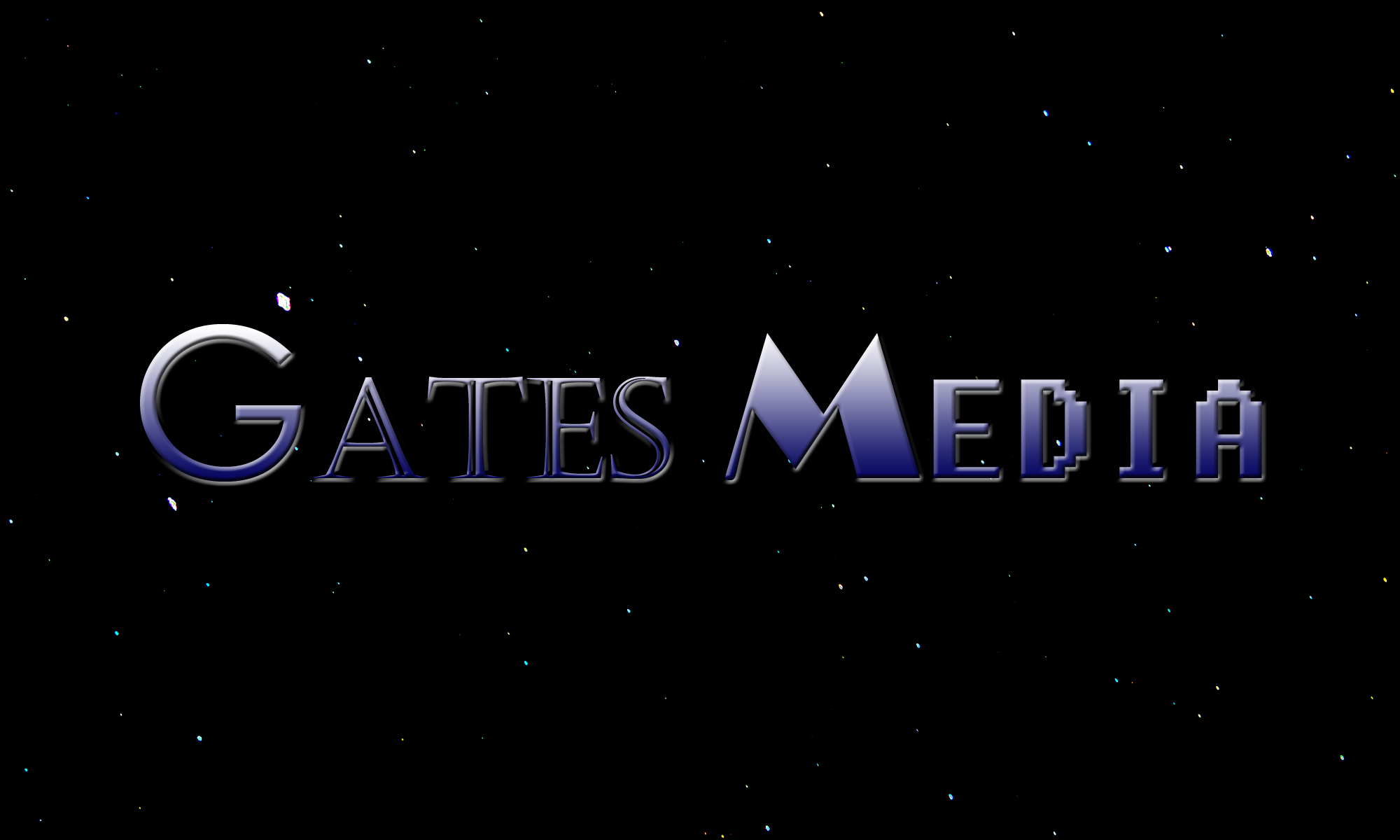
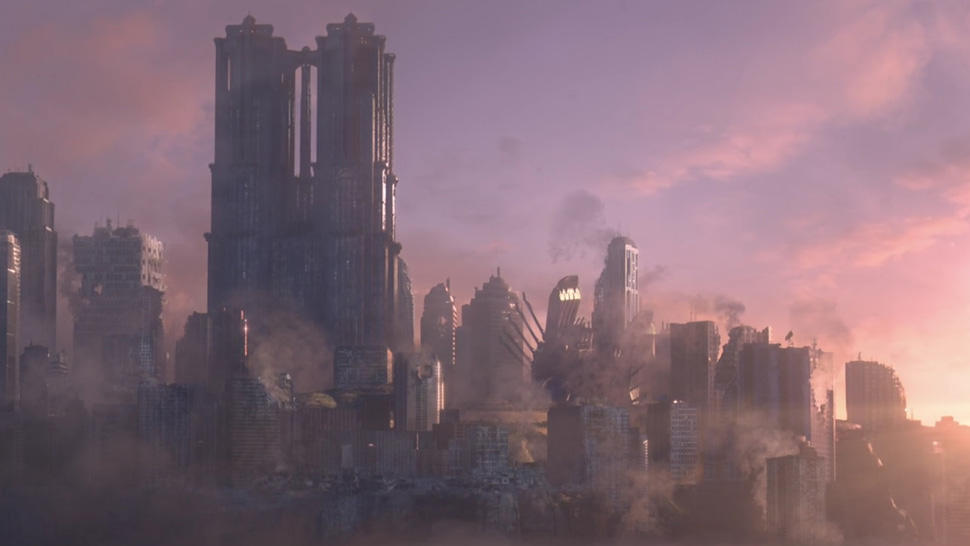
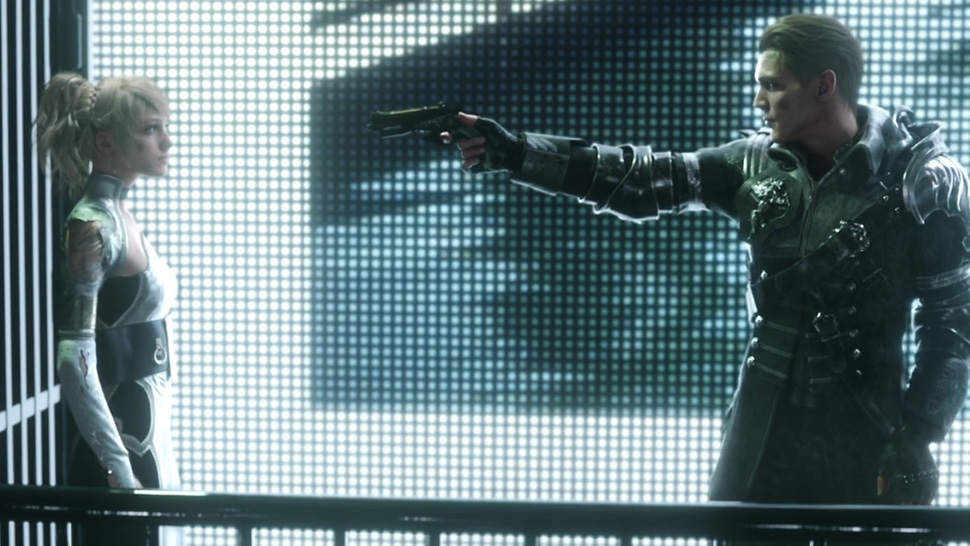
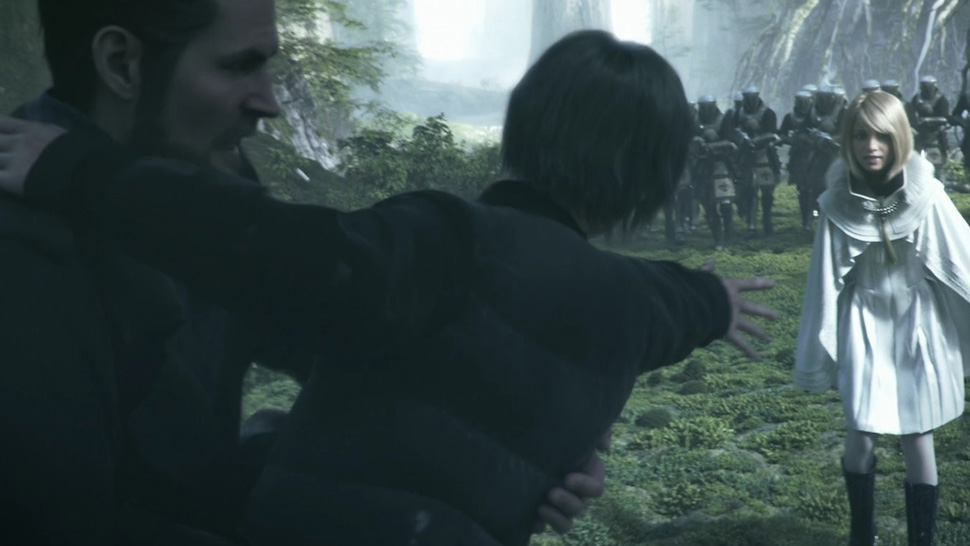
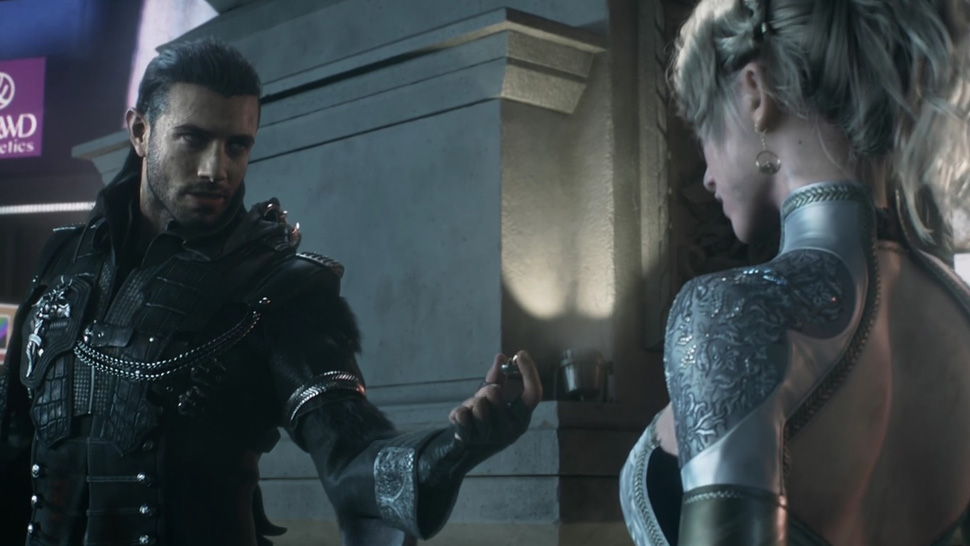
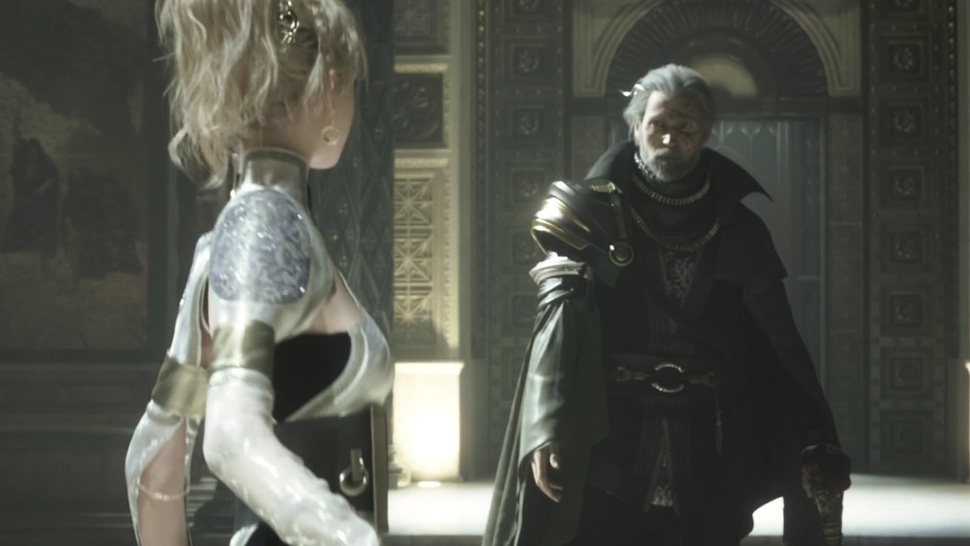
4 Replies to “Kingsglaive: The Void Noctis Left Behind”
Comments are closed.